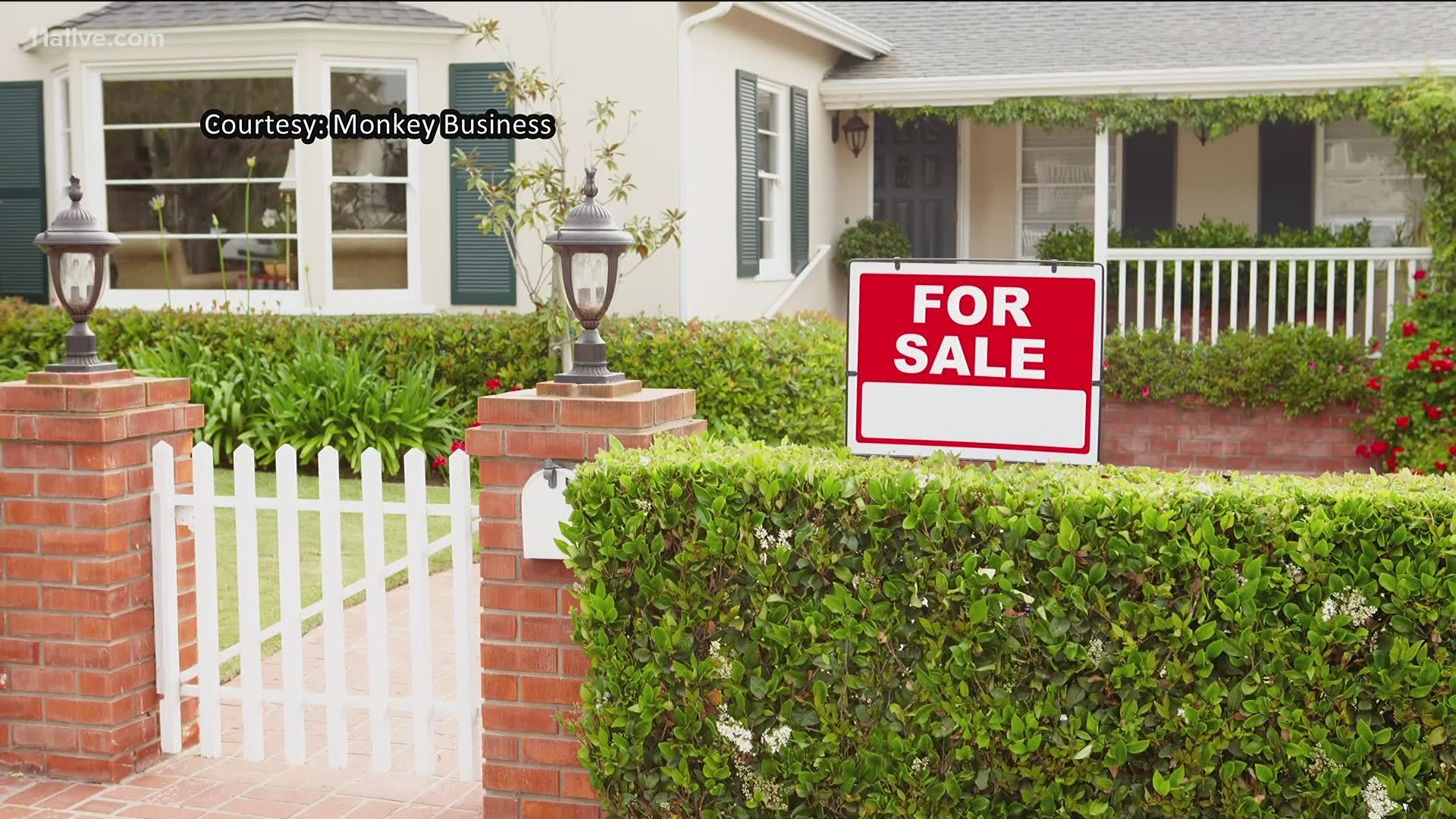ATLANTA — Development is all around the City of Atlanta: new condos and luxury apartments, high rises, and neighborhoods. Alison Johnson, the executive director of the Housing Justice League, noticed what she called a disturbing trend.
"As these projects were developing, our communities were being displaced disproportionately, particularly on the Southside of Atlanta," Johnson said. "These communities have been fighting for decades for true investment in housing, education and economic opportunities. When those opportunities are disconnected from communities, our communities are hit the hardest.”
The Aspen Institute confirmed those findings, estimating as many as 40 million people could be out of a home once the Centers for Disease Control and Prevention's nationwide eviction moratorium expires. The Aspen Institute said this represents about 30-40% of renters, and is predominantly comprised of low-income communities and people of color.
Research showed people of color were twice as likely to be low-income and rental cost-burdened, paying more than 30% of their income towards rent. One study showed Black and Latinx people comprised 80% of people facing eviction, with Black households twice as likely to be evicted than white households.
RELATED: 'Eviction pandemic' | Advocates demand action to address evictions, as CDC moratorium set to expire
The Aspen Institute said tenants with legal counsel are much less likely to be evicted, though they believe fewer than 10% of renters have access to legal counsel when defending against an eviction, compared to 90% of landlords.
Researchers said the pandemic caused one of the most severe housing crises in history. But Johnson said turning around generational issues like redlining, a lack of high-paying jobs and stable home ownership would require knowledge, persistence and new policies.
"We don’t have hard policies that protect renters," Johnson said. "We don’t have policies that protect rent control, so we’re being forced out of our communities continuously. The tenants are always the ones to carry the burden of whatever happens to them.
RELATED: Evictions, poverty, and underserved communities | The ripple effects of COVID-19 in Georgia
"If we have these things that protect us, folks investing, and our tax dollars are coming back into our communities where we can invest in home ownership, jobs and education and we have stable places to live, then some of these cycles will stop.”
Johnson's group, the Housing Justice League, works to organize tenant associations to provide more resources to build willpower to fight against evictions. The Atlanta-based organization also provides a manual to walk tenants through the process of an eviction.
While evictions technically cannot occur, it's unclear how many evictions may have happened during the pandemic. Landlords are owed billions of dollars that they didn't receive for over a year, and the inability to pay mortgages and property taxes put them in a bind. Small property owners found themselves at greater risk of foreclosure and bankruptcy as a result.
Matt Westmoreland, an Atlanta city councilman, said Council passed a $100 million housing bond to address badly needed repairs to units and acquire land to build more affordable housing. He said it was the largest infusion of money into housing affordability in the city's history.
“It’ll help either build or preserve 3,500 units of affordable housing all across the city, some rental, some helping folks purchase their own homes," Westmoreland said. "There are really wide income gaps that exist in the city, and we have one of the lowest social mobility rates in the country, so targeting our energy, efforts and resources on attacking those problems is key for the future of the city.”
Westmoreland said the City of Atlanta also plans to target $22 million in CARES Act funding and $180 million in American Rescue Plan funds toward rental and mortgage assistance, along with tackling homelessness. The city councilman said the key to solving the housing issue in Atlanta was not just building affordable housing, but also connecting residents to good-paying jobs.
He said programs like the middle wage job fund connect residents in underserved communities to jobs that have health benefits and earn up to $80,000 per year. He said the city is also working with apartment associations to keep people housed, as the state does not have particularly strong laws on evictions.
Time is running out to find solutions, however, as the national eviction moratorium expires at the end of June.

